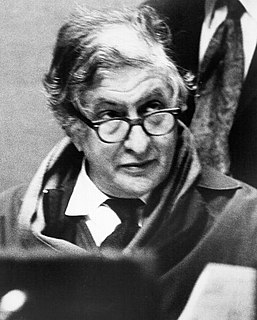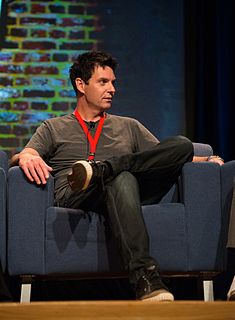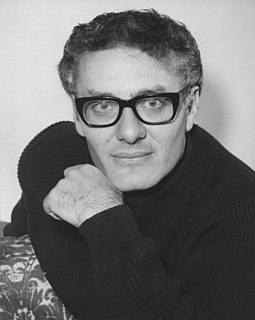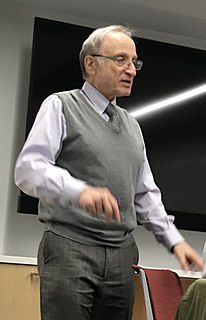A Quote by Ellen Dissanayake
In every human society of which we know - prehistoric, ancient or modern, whether hunter-gatherer, pastoral, agricultural or industrial - at least some form of art is displayed, and not only displayed, but highly regarded and willingly engaged in.
Related Quotes
Industrial Society is not merely one containing 'industry,' large-scale productive units capable of supplying man's material needs in a way which can eliminate poverty: it is also a society in which knowledge plays a part wholly different from that which it played in earlier social forms, and which indeed possesses a quite different type of knowledge. Modern science is inconceivable outside an industrial society: but modern industrial society is equally inconceivable without modern science. Roughly, science is the mode of cognition of industrial society, and industry is the ecology of science.
As a composer I might class myself as a Neo-Romantic, inasmuch as I have always regarded music as a highly personal and emotional form of expression. I like to write music which takes its inspiration from poetry, art and nature. I do not care for purely decorative music. Although I am in sympathy with modern idioms, I abhor music which attempts nothing more than the illustration of a stylistic fad. And in using modern techniques, I have tried at all times to subjugate them to a larger idea or a grander human feeling.
It is only a novel... or, in short, only some work in which the greatest powers of the mind are displayed, in which the most thorough knowledge of human nature, the happiest delineation of its varieties, the liveliest effusions of wit and humour, are conveyed to the world in the best-chosen language
The wisdom of the chess player is displayed more in winning over a capable opponent than a novice. The wisdom of the general is displayed more in defeating a superior army than in subduing an inferior one. Even more so, the wisdom of God is displayed when He brings good to us and glory to Himself out of confusion and calamity rather than out of pleasant times.
Unless created as freestanding works, quotations resemble "found" art. They are analogous, say, to a piece of driftwood identified as formally interesting enough to be displayed in an art museum or to a weapon moved from an anthropological to an artistic display.... The presenter of found art, whether material or verbal, has become a sort of artist. He has not made the object, but he has made it as art.
The religion of art, like the religion of politics, was born from the ruins of Christianity. Art inherited from the old religion the power of consecrating things and endowing them with a sort of eternity; museums are our temples, and the objects displayed in them are beyond history. Politics--or more precisely, Revolution--co-opted the other function of religion: changing human beings and society. Art was an asceticism, a spiritual heroism; Revolution was the construction of a universal church.
One cannot avoid a certain feeling of disgust, when one observes the actions of man displayed on the great stage of the world. Wisdom is manifested by individuals here and there; but the web of human history as a whole appears to be woven from folly and childish vanity, often, too, from puerile wickedness and love of destruction: with the result that at the end one is puzzled to know what idea to form of our species which prides itself so much on its advantages.
Ruskin's much-derided moral theory of art was part of an attempt to show that this human activity, which we value so highly, engaged the whole of human personality. His insistence on the sanctity of nature was part of an attempt to develop Goethe's intuition that form cannot be put together in the mind by an additive process, but is to be deduced from the laws of growth in living organisms, and their resistance to the elements.
































